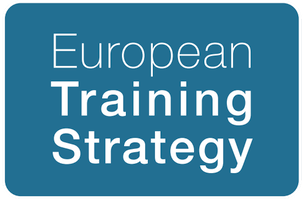

Competences
Assesing one's own learning achievements and competences + -
Criteria
Knowledge of the principles and methods of assessment and self-assessment
Indicators
- Refers to various assessment and self-assessment principles and methods
Knowledge of the concept of competence and its uses in a learning context
- Demonstrates an understanding of the concept of competence in a learning context
Skill to choose and use assessment and self-assessment tools and to derive learning achievements from this
- Applies the concept of competence in a learning context
- Applies appropriate methods and digital tools for assessment and self-assessment of their own learning achievements
Skill to adjust and convey the concept of competence to various groups of learners
- Communicates the concept of competence to groups of learners
Curiosity about their own learning process
- Reflects about their own learning process
Openness and readiness to accept various perceptions of one’s competences and learning achievements
- Reflects on various perceptions and maintaining or recovering their own emotional balance afterwards
Readiness to focus on attitudes and values and their development when assessing their own competences
- Pays special attention to attitudes and values when self-assessing and planning further development
Identifying learning objectives and pursuing them pro-actively + -
Criteria
Knowledge of strengths, weaknesses and learning opportunities in relevant fields and contexts
Indicators
- Refers to strengths, weaknesses and learning opportunities in relevant fields and contexts
Knowledge of the basic principles of learning processes
- Understands how learning can be organised in an effective and meaningful way and diverse learning environments, including online
Awareness of how artificial intelligence algorithms influence our choices
- Understands the impact of AI on choosing learning objectives when using online platforms for learning
Understanding of value-based education and the importance of values in a learning process
- Demonstrates an understanding of the importance of values and how to design opportunities for value-based learning in a learning process
Skill to analyse learners’ strengths, weaknesses and learning opportunities and to plan the learning process accordingly
- Analyses learners’ strengths, weaknesses and learning opportunities
Skill to plan the learning process according to learners’ identified strengths, weaknesses and learning opportunities
- Plans the learning process taking into account learners’ strengths, weaknesses and learning opportunities
Commitment to implementing the learning plan
- Motivates and supports the implementation of the learning plan
Awareness and acceptance of learners’ responsibility for one’s own learning process
- Explicitly encourages and enables learners to take responsibility for their own learning process
Readiness to unlearn
- Intends to let go of what they have already learned or acquired to make way for new experiences and learning achievements
Undergoing personal/professional development through feedback + -
Criteria
Knowledge of the principles and mechanisms of feedback
Indicators
- Understands the values and mechanisms of feedback
Skill to give, receive and integrate feedback in a constructive way
- Gives, receives and integrates feedback in a constructive way
Curiosity about and readiness to ask for feedback
- Asks for feedback
- Shows a willingness to learn from others, even from those who may have different values and world views
Openness to accept one’s own unconscious behaviours/habits
- Integrates feedback and maintains or recovers their own emotional balance afterwards
Acknowledging and dealing with unexpected learning moments and outcomes + -
Criteria
Knowledge of learning as a continuous process
Indicators
- Demonstrates an understanding of learning as a continuous process
Skill to reflect and adjust the learning process
- Reflects on the learning process
- Changes learning processes accordingly
Openness for and readiness to balance between planned and unplanned learning objectives
- Trains focus on planned learning objectives while remaining open to incorporating unplanned ones
Readiness to self-reflect to understand their own motivations
- Regularly critically reflects their own values and motivations and how they impact behaviours
Identifying and providing appropriate resources to support individual learning + -
Criteria
Knowledge of existing appropriate resources for supporting learning
Indicators
- Refers to existing appropriate resources for supporting learning
- Uses online resources to extend in-person learning
Skill to organise existing appropriate resources to support individual learning
- Organises existing appropriate resources for individual learning purposes
Structured and organised approach
- Organises resources in a structured way for learning purposes


